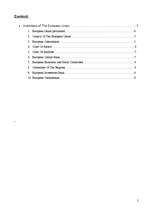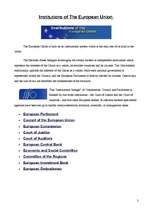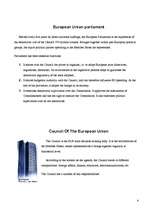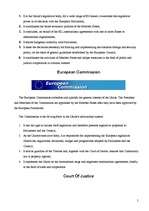-
European Union Institutions
| Nr. | Название главы | Стр. |
| Institutions of The European Union | 3 | |
| 1. | European Union parliament | 4 |
| 2. | Council Of The European Union | 5 |
| 3. | European Commission | 5 |
| 4. | Court Of Justice | 6 |
| 5. | Court Of Auditors | 7 |
| 6. | European Central Bank | 7 |
| 7. | European Economic and Social Committee | 8 |
| 8. | Committee Of The Regions | 8 |
| 9. | European Investment Bank | 8 |
| 10. | European Ombudsman | 9 |
European Union parliament
Elected every five years by direct universal suffrage, the European Parliament is the expression of the democratic will of the Union's 374 million citizens. Brought together within pan-European political groups, the major political parties operating in the Member States are represented.
Parliament has three essential functions:
1. It shares with the Council the power to legislate, i.e. to adopt European laws (directives, regulations, decisions). Its involvement in the legislative process helps to guarantee the democratic legitimacy of the texts adopted;
2. It shares budgetary authority with the Council, and can therefore influence EU spending. At the end of the procedure, it adopts the budget in its entirety;
3. It exercises democratic supervision over the Commission. It approves the nomination of Commissioners and has the right to censure the Commission. It also exercises political supervision over all the institutions.
…
Considered and detailed described all the European Union Institutions (parliament, council, commission, court of justice and auditors, European central and investment banks, economic and social committee etc.) , as well as system on which built EU, plus added the presentation.















